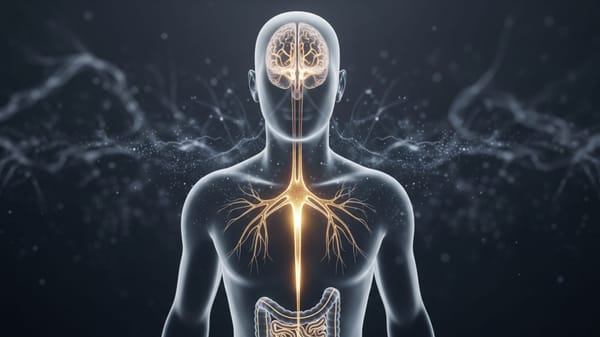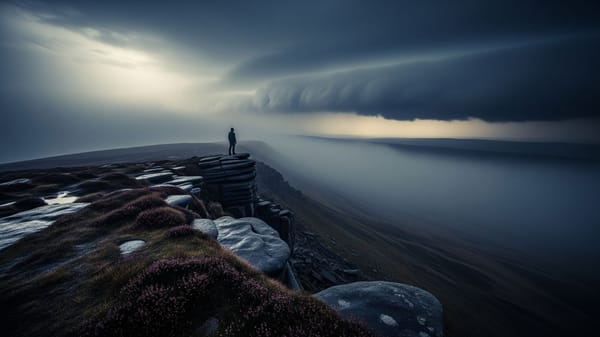The Hawkins Mindset: What Stranger Things Teaches Us About Mental Health, Resilience, and Our Inner Vecna
This isn't a review. It's a deep dive into the powerful mental health metaphors of Stranger Things. We explore Vecna as a metaphor for trauma, Eleven's journey of resilience, and how the "shared experience" of the Party provides a philosophical blueprint for facing our own inner demons.
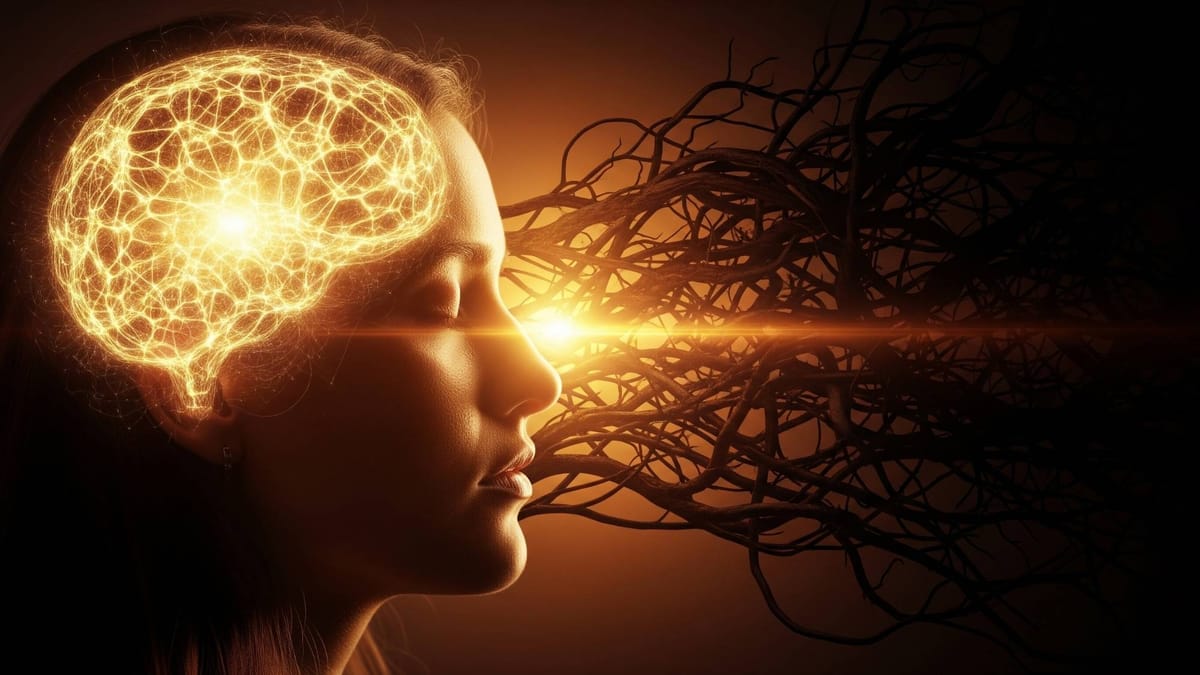
It's difficult to pinpoint the exact moment Stranger Things transcended from a television series into a global cultural phenomenon. Was it the nostalgic glow of 1980s synth, the Dungeons & Dragons-inspired lore, or the simple, profound loyalty of four friends on bikes?
For me, and for millions of others, the true power of the series lies deeper. This isn't a review, nor is it a fan theory about the finale. This is a homage. It’s an exploration of how a story about a small town in Indiana became one of the most powerful and important modern allegories for mental health.
The Duffer Brothers, perhaps even unintentionally, have held a mirror up to our own internal "Upside Down." They’ve given a face and a name to the invisible battles many of us fight every day. In doing so, they’ve validated the feelings of an entire generation and started a conversation that is desperately needed.
The show is a philosophical playground. It explores our deepest fears, our most profound connections, and our capacity for resilience. And through this lens, through what I call The Bar Raiser Mindset, we can find a blueprint for navigating our own inner world.
Vecna: The Anatomy of Our Inner Demon
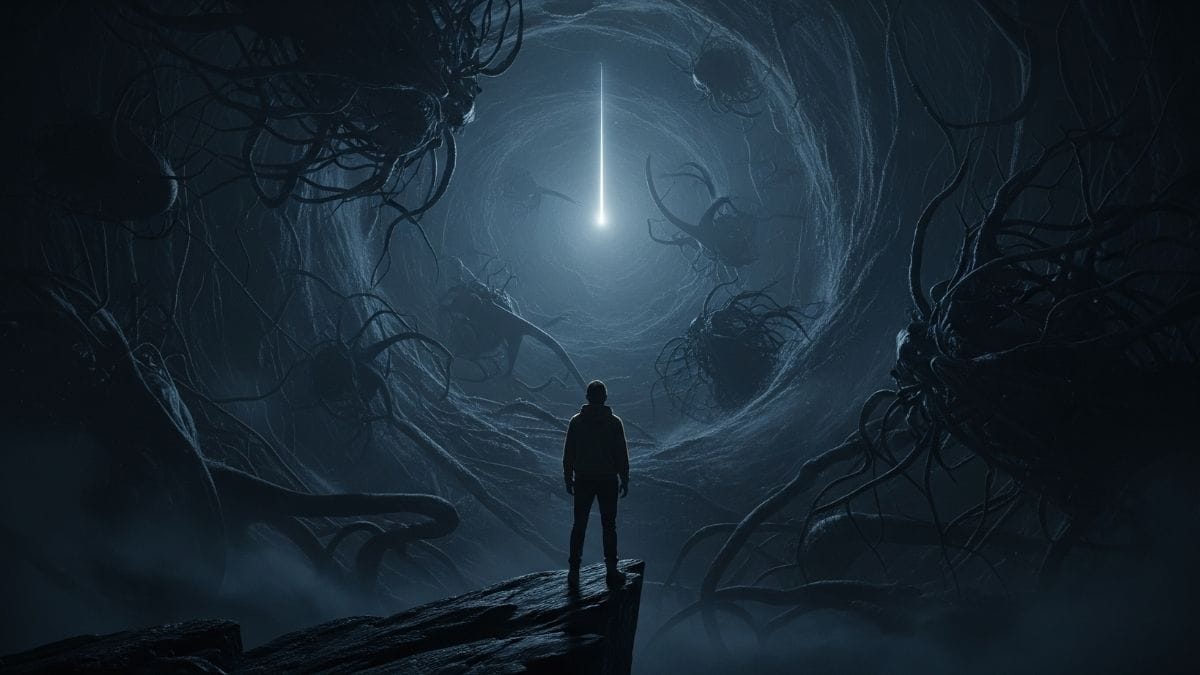
I’m fascinated by Vecna. Not just as a compelling villain, but as a near-perfect personification of trauma, depression, and our deepest, most insidious insecurities.
Unlike the animalistic Demogorgon, Vecna is an intelligent predator. He is intimate. He doesn't just attack; he curates his victims. He hunts for those who are already struggling—those isolated by their guilt, their shame, and their past pain.
Think of his methods. He doesn't create the trauma; he finds the pre-existing crack in his victim's psyche. For Max, it was the crushing, complex guilt surrounding her brother Billy's death. For Chrissy, it was the voice of her mother, feeding her body dysmorphia.
Vecna is the name we give to our "Inner Demon." He is the internal narrative that whispers our worst fears back to us. You are broken. You are alone. You are responsible for what happened. No one can save you.
His curse is the cycle of intrusive thoughts, the grip of depression that distorts reality until we are trapped within our own minds, seeing only a nightmarish reflection of the world. In the language of mental health, this is the devastating power of isolation. Vecna's ultimate goal is to make you believe you are so completely and utterly alone that you are beyond saving.
The Bar Raiser Mindset is founded on the principle of radical honesty, especially with oneself. We cannot fight an enemy we refuse to see. The first, most courageous step is to acknowledge that this "Inner Vecna" exists. To give its whispers a name is to take away its power. It is the beginning of reclaiming your own mind.
"Running Up That Hill": The Anthem of Connection
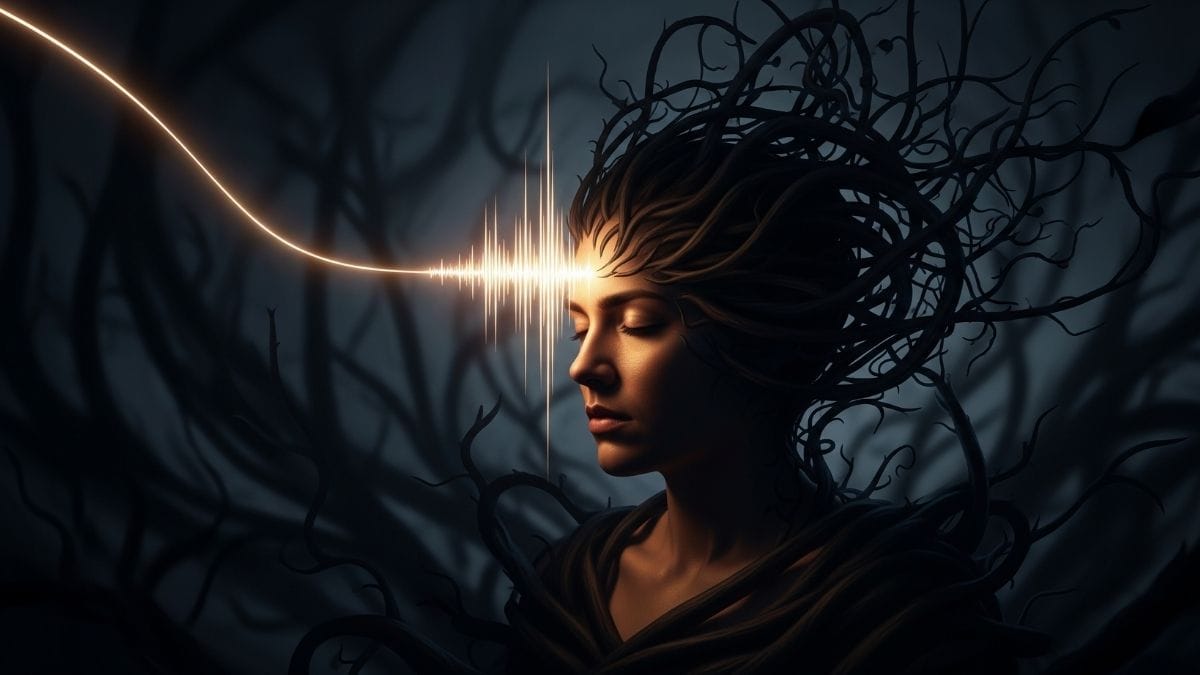
The scene is already etched into television history. Max, lifted into the air, her bones beginning to snap, trapped in Vecna’s mind-lair. She is, for all intents and purposes, gone.
And then, a sound. A muffled chord from her Walkman.
Kate Bush’s "Running Up That Hill" is not just a song. In that moment, it is an anchor. It is a lifeline, a rope thrown from the "real world" into the heart of Max's traumatic isolation. It’s the sonic embodiment of her friends, her joy, her memories—everything that Vecna told her she had lost.
This is the antidote. If Vecna's curse is isolation, the cure is connection.
We all have a "Vecna" that tries to pull us under. And we all possess a "song." Your "song" is not just music. It’s any anchor that reminds you of who you are beyond your pain.
It could be the physical sensation of your feet on the ground. It could be the memory of a past success, a moment of pure, unadulterated joy. It could be the voice of a loved one, a photograph, or the promise you made to yourself.
When you feel the pull of that inner darkness—the anxiety, the spiral of negative thought—your single most important task is to find your song. To consciously reach for the anchor that grounds you in the present moment and reminds you, "I am here. I am real. I am not alone."
Eleven: Forging Resilience from Lived Experience
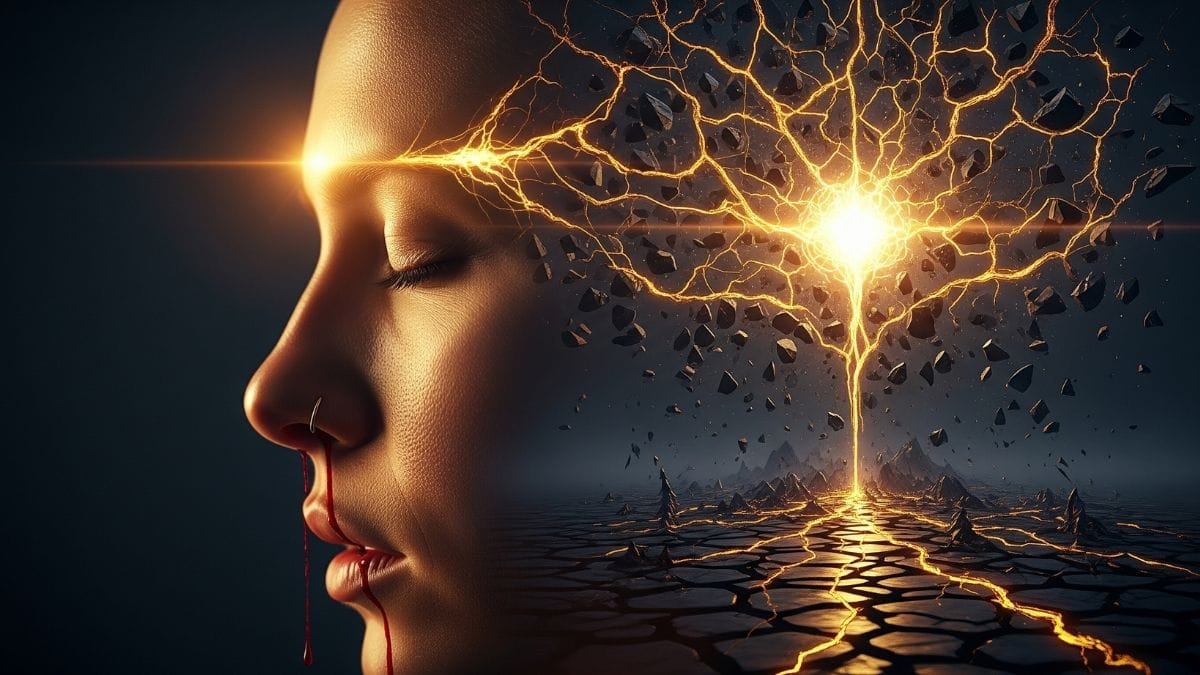
Eleven’s journey is, for me, the very heart of the show's philosophy on mindset. Her entire story is a masterclass in resilience.
Her extraordinary power was born from extraordinary trauma. She was not raised; she was engineered. Her abilities were, for so long, intrinsically tied to her fear, her rage, and her pain. They were a force she couldn't control, one that often hurt the people she loved.
Her journey is not about becoming "fearless." It is about integrating her past.
In Season 4, to regain her powers, she is forced to relive her most painful memories. She must confront the truth of her relationship with "Papa" and, most terrifyingly, her creation of Vecna himself. She doesn't just remember her trauma; she walks back into it, understands it, and re-frames it.
This is the essence of The Bar Raiser Mindset. It is not about pretending the past didn't happen. It is not "positive vibes only." It is the courageous, difficult, and necessary work of facing your own history. It is the understanding that your lived experience, even the darkest parts of it, can be forged into your greatest strength.
Eleven’s power is no longer just a reaction to her pain; it is a conscious choice fuelled by her love for her friends. She has integrated her past, and in doing so, has claimed her power. She teaches us that resilience isn't the absence of scars; it's the strength you built while healing them.
Jim Hopper: The Evolution from Cynicism to Purpose
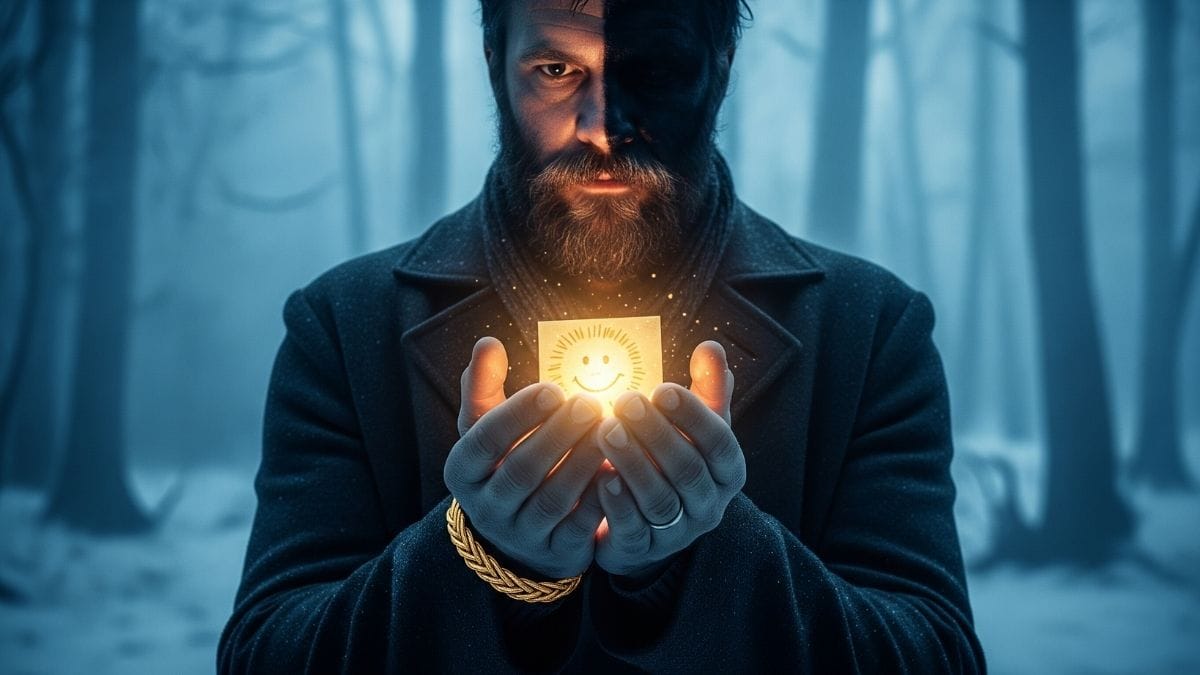
If Eleven’s journey is about forging strength from trauma, Jim Hopper’s is about the evolution from cynicism to purpose.
When we first meet Hopper, he is a man trapped. He is a ghost in his own life, haunted by the death of his daughter, Sara. He numbs his grief with pills and alcohol, his cynicism a shield against any further pain. His iconic line from Season 1—"Mornings are for coffee and contemplation"—is the mantra of a man in deep, functional isolation.
His transformation is sparked not by an epiphany, but by a purpose: finding Will Byers. That purpose then transfers and deepens: protecting Eleven.
His evolution is put to the ultimate test in the Russian gulag. He endures an existence designed to break the human spirit. But this is not the same man from Season 1. He is no longer just "Hopper"; he is "Dad." He has an anchor. He has a why. He holds on to the hope of seeing Eleven and Joyce again, and that hope becomes a form of resilience that is physically unbreakable.
Hopper’s story is a powerful reminder that our mindset is not a fixed state. It is a choice, one we get to make every single day. We are not defined by our past grief or our cynicism. We can choose to find a new purpose. We can evolve from a victim of our story into the protector of its future.
The Party: The Philosophical Power of Shared Experience
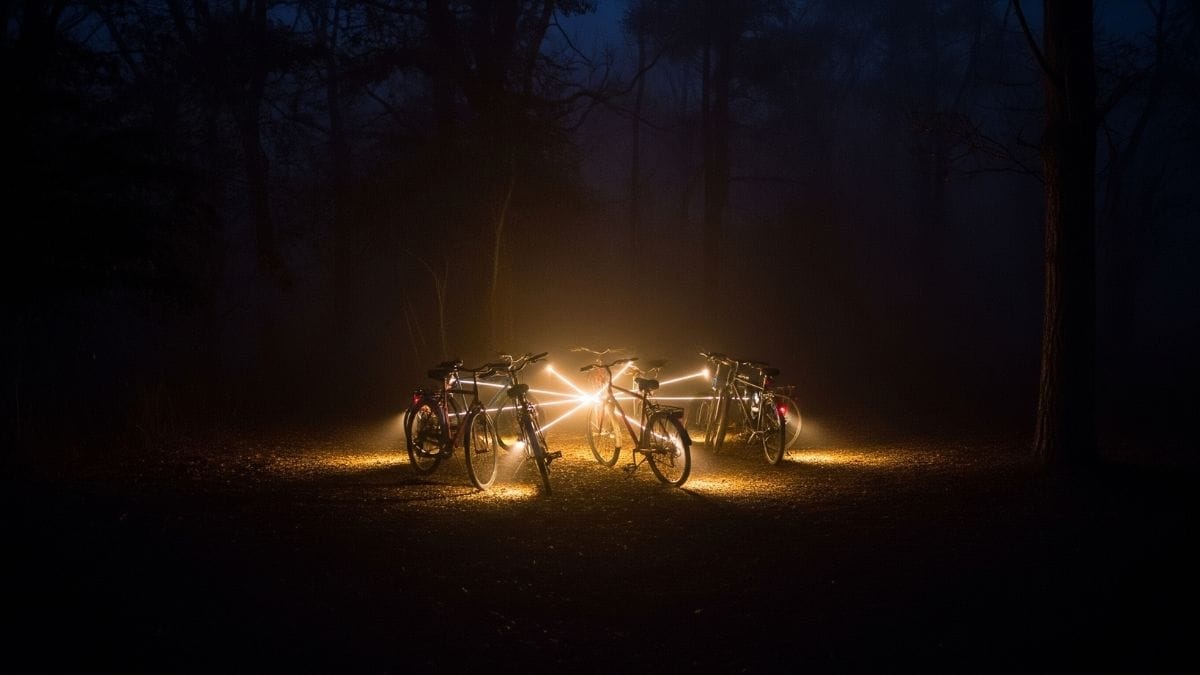
This brings me to the "shared experience" that makes Stranger Things so special. Because for all the individual power of Eleven, the true hero of the series is not a person. It is "The Party."
Mike, Will, Lucas, Dustin, Eleven, and Max—they are a collective. Their loyalty is their strategy. Their friendship is their superpower.
In a world that constantly tells us to hide our struggles, to "be strong" on our own, The Party operates on a principle of radical acceptance and shared burden. When Will is possessed by the Mind Flayer, they don't quarantine him; they rally around him. When Max is cursed by Vecna, they don't see her as broken; they build a fortress of love and music to keep her safe.
They don't run from the monster; they run towards each other.
This is perhaps the most profound and actionable lesson in the entire series. We are conditioned to believe that our "Inner Vecna"—our depression, our anxiety, our trauma—is a personal, secret battle. We hide it, ashamed, fearing that it makes us weak or unlovable.
Stranger Things smashes that stigma. It tells us that the most courageous and effective strategy is to share your "curse" with your "Party." To be vulnerable. To ask for help. To trust that the people who love you will not run, but will instead grab their metaphorical walkie-talkies and fight with you.
Connection is our greatest weapon.
We are all, in our own way, living in Hawkins. We are all navigating a world that can feel chaotic and frightening, fighting internal battles that no one else can see.
Stranger Things is a love letter to the misfit, the outcast, the person who feels broken or alone. It’s a philosophical blueprint disguised as a nostalgic sci-fi adventure. It teaches us that our trauma (Vecna) may be a part of our story, but it does not get to write the ending. It reminds us that our lived experience (Eleven) is the source of our deepest strength. And it proves that our connections (The Party) are the most powerful force in the universe.
As we all wait for the final season, the true finale is not on screen. It is within us.
The Bar Raiser Mindset is about recognising this. It's about choosing to be the hero of your own story. It’s about finding your Party, identifying your song, and having the courage to face your inner demons, knowing that you do not have to face them alone.
The principles discussed are not a substitute for professional advice. Individual results from applying these concepts will vary, as your unique path, choices, and consistent efforts play the most significant role in your experiences. If you require guidance regarding specific personal, financial, medical, or mental health situations, please consult with a qualified professional. Please engage with these ideas responsibly, understanding that you are the architect of your choices and actions.


